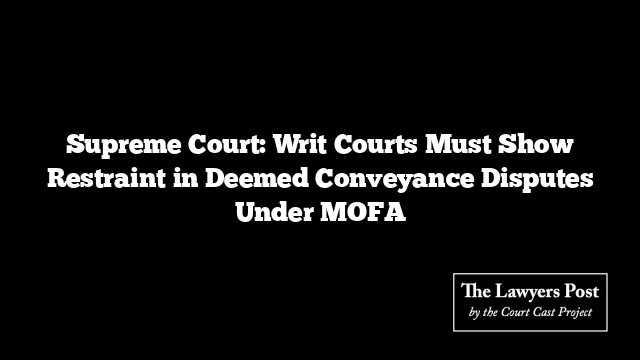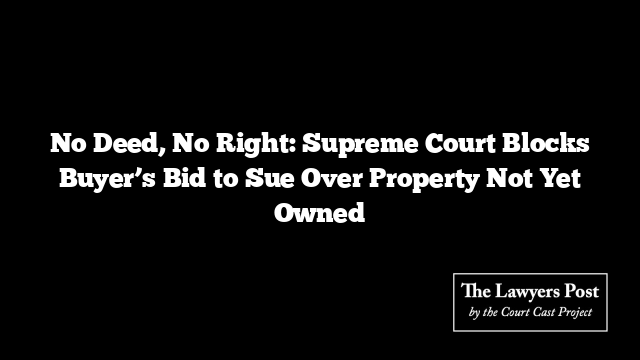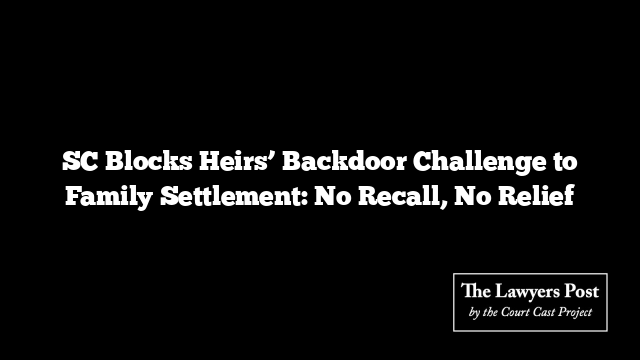In a notable ruling concerning the Maharashtra Ownership Flats Act, 1963 (MOFA), the Supreme Court has held that High Courts should refrain from interfering with orders of deemed conveyance unless the orders are manifestly illegal. The judgment reinforces the power of the competent authority under MOFA to grant such conveyance when a developer fails to execute it in favor of flat owners.
A bench comprising Justice Abhay S. Oka and Justice Ujjal Bhuyan upheld a Bombay High Court decision which declined to intervene in a deemed conveyance order passed under Section 11(4) of MOFA. The appeal had been filed by a developer challenging the transfer of property rights to a co-operative housing society formed by purchasers who had not received formal conveyance from the developer.
The Court emphasized that MOFA is a welfare legislation aimed at safeguarding home buyers from widespread malpractices by builders, particularly in urban areas where the housing shortage remains acute.
“The provisions of Section 11 are for the benefit of flat purchasers. In writ jurisdiction, the Court should not interfere with the order granting deemed conveyance under Section 11(4), unless the order is manifestly illegal,” the Court stated. It added that aggrieved parties retain the right to pursue civil suits to resolve title disputes, making writ interference unnecessary in most cases.
Among the key observations made by the Court:
- Quasi-judicial Nature: While the competent authority under MOFA exercises quasi-judicial powers, its proceedings are of a summary nature and cannot conclusively resolve title disputes.
- Limited Writ Intervention: The High Court’s writ jurisdiction should not be invoked lightly in cases involving deemed conveyance, as civil remedies remain available.
- Registering Officer’s Boundaries: A registering officer cannot act as an appellate authority over the competent authority’s decision. Their powers under Section 11(5) are restricted to specified grounds only.
Dismissing the appeal, the Supreme Court concluded that substantial justice had been served, especially since the developer’s rights as a perpetual lessee with development rights over the property had been adequately protected.





